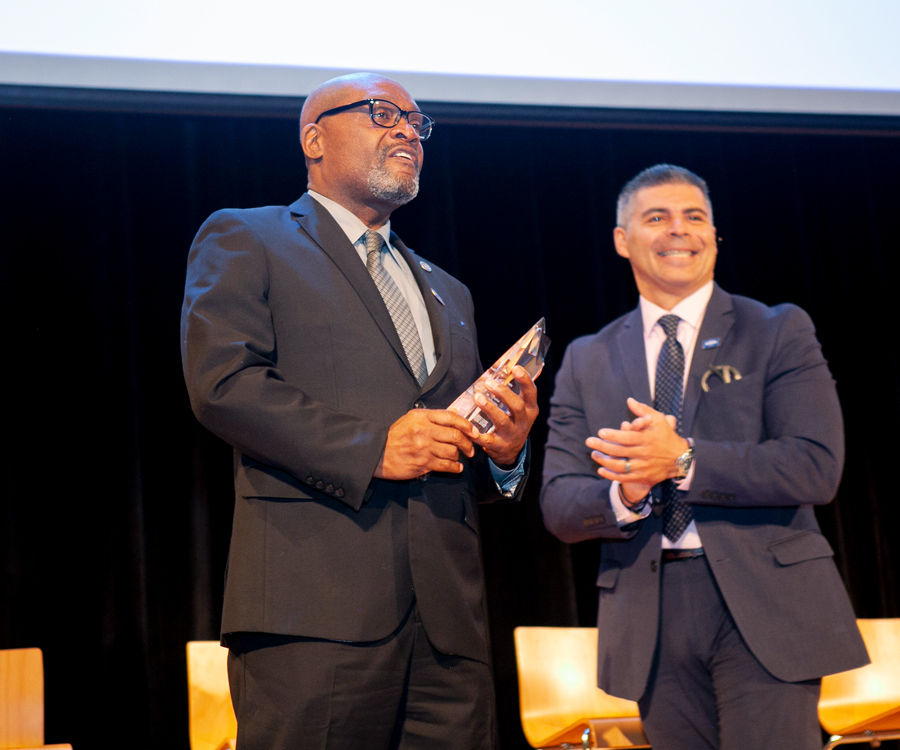Veterans Day has deep meaning for members of the military and their families.
For Jessie Harris, a USPS custodian at the Westchester, NY, Processing and Distribution Center and an Army veteran, Nov. 11 is a day to reflect on one of the most harrowing experiences of his life: the four-and-a-half months he spent as a prisoner of war during the Vietnam War.
“Sometimes when I talk about it, it takes me right back there. I can feel every emotion,” he said.
A native of Tuscaloosa, AL, Harris was working as a graphic artist for IBM in the late 1960s when he decided to voluntarily enlist.
“President Kennedy said, ‘Ask not what your country can do for you, but what you can do for your country.’ So I joined the military,” he said.
In May 1969, while on patrol with his unit, Delta Company, Harris was ambushed by a Viet Cong military unit.
In the ensuing intense firefight, Harris was shot in the right arm.
The Viet Cong unit advanced toward Harris and engaged in crossfire as a Delta Company search party called out to him. Harris kept quiet.
“If I had allowed myself to be used as bait, soldiers would have lost their lives. I didn’t want to do anything that would bring shame on my family. I wanted my family to be proud of me, even if I was dead,” he said.
The Viet Cong captured Harris as a prisoner of war.
“I prayed to be shot in the head. I wanted to be taken out quickly,” he said.
Harris was the only U.S. soldier held by the Viet Cong unit. No one spoke English. He had no way of knowing what would happen to him.
Suffering from his wounds, exposed to the elements, weakened by malnutrition and malaria, days became weeks. Weeks became months.
There were terrifying moments when the Air Force would incinerate enemy areas with napalm. One bombing raid was yards from where Harris was held.
“All I could do is lay there and say the Lord’s Prayer over and over,” Harris said.
Back home, with Harris’s fate unknown, loved ones gave up hope of ever seeing him again — except his mother.
“My mom always said, ‘My son is not dead,’” he said.
In October 1969, Harris was finally released after spending 135 days in captivity. He was welcomed home by Gen. William Westmoreland, commander of the U.S. forces, and spent months in a hospital recovering.
He also received a Purple Heart medal for his valor.
Harris went on to marry and have two sons, three daughters and six grandchildren, along with a fulfilling postal career.
At the Westchester Processing and Distribution Center, colleagues know him as a dedicated, conscientious worker.
“Jessie is excellent employee, always on time for his shift and always willing to help a fellow worker. He will always be my hero,” said Barbara Belton, the plant’s maintenance operations supervisor.
For Harris, his experiences during the war seem like a lifetime ago — yet some memories linger.
“I’m 70 years old now, but I still remember the fear,” he said.
“There are two different kinds of fear. There is the fear that will make you cower and run away. Then there is a fear that will make you stand your ground and do what is necessary, no matter the consequence — even if it means your own death. That was the kind of fear I had. You can’t forget it.”
